Why-to-Try Divine Binyamina Winery Wines
(Gerry Furth-Sides) Heavenly selections from kosher Binyamina Winery in Israel completed what felt like a heavenly Tel-Aviv Groove experience last fall. So it was exciting when the invitation arrived to a Binyamina wine-pairing dinner this winter with at Nua restaurant. (Please see //localfoodeater.com/tel-aviv-grooves-authentic-kabbalat-shabbat-dinner-at-nua-restaurant/. Thank you Israeli event mastermind, Orly Segal!
The other guests, international cookbook author-photography team of Faye and Yakir Levy, who I had introduced to the event, waited with me for the rest of the diners to arrive, only to learn that in this case, an “intimate” dinner meant the six of us, three from the winery. What an honor! Also to be the only non-Hebrew speaking diner. Faye and Yakir’s astute questions and observations are included in this account.
Chief Winemaker Yonatan Shotts explained the finer about pairing them with food. Binyamina’s Marketing Manager Omer Ben Horin and Export Manager Estie Marom Conway offered more details about the wine, including the most popular ones in Israel and internationally. Read on for one surprise.
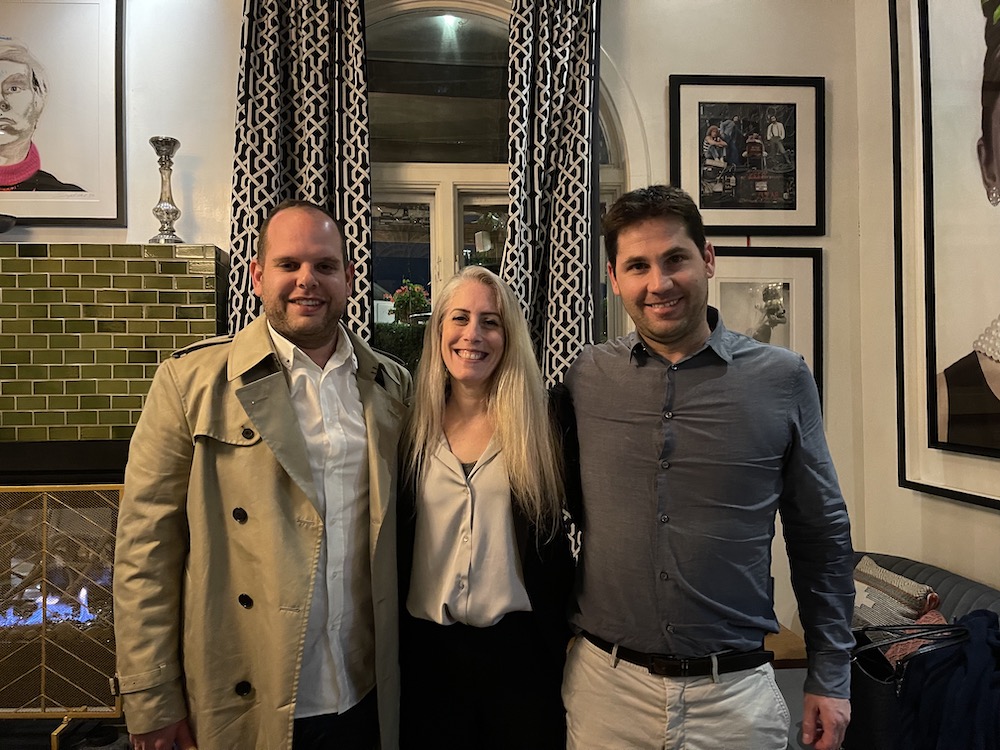
Yonatan, who studied Enology in Florence told us that Israeli microclimates and conditions are comparable to southern Italian wine regions. These more specifically are Umbria, Puglia, Campania and Sicily.
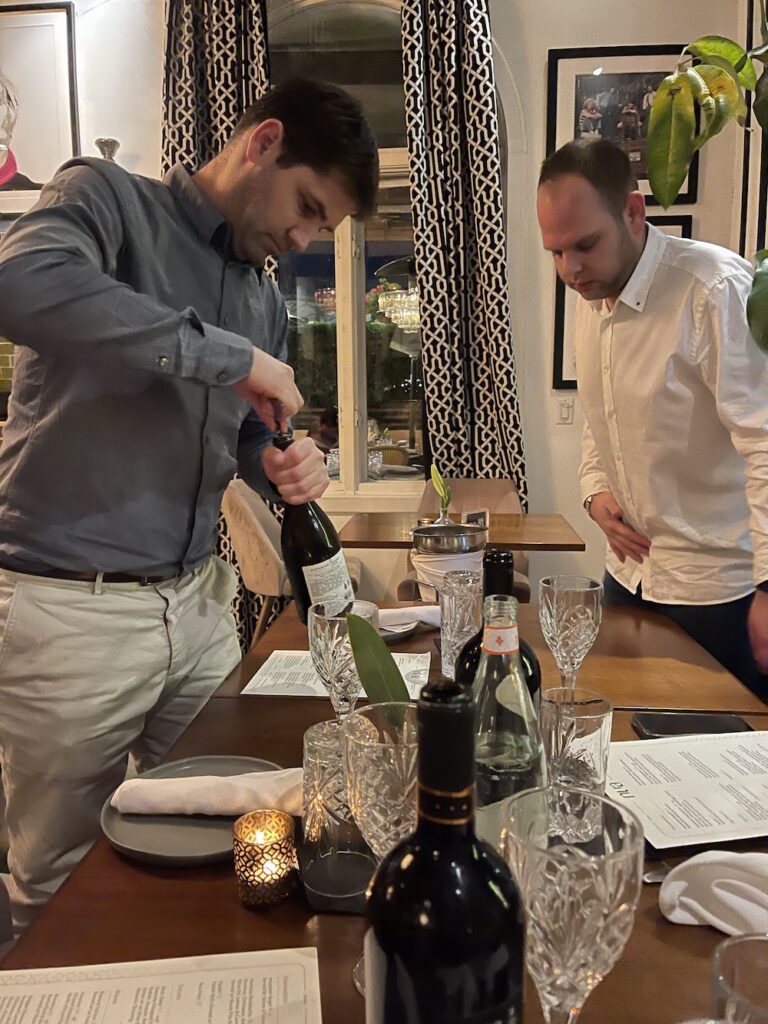
We have been impressed with the Diamond, Yahalom 2019, since we first tried this at the Tel Aviv Groove event last fall. This is a blend of Cabernet Sauvignon, Merlot, Petit Verdot and Syrah. It complements most Mediterranean dishes, such as the fish and the eggplant that Chef Yoav served it with this evening.
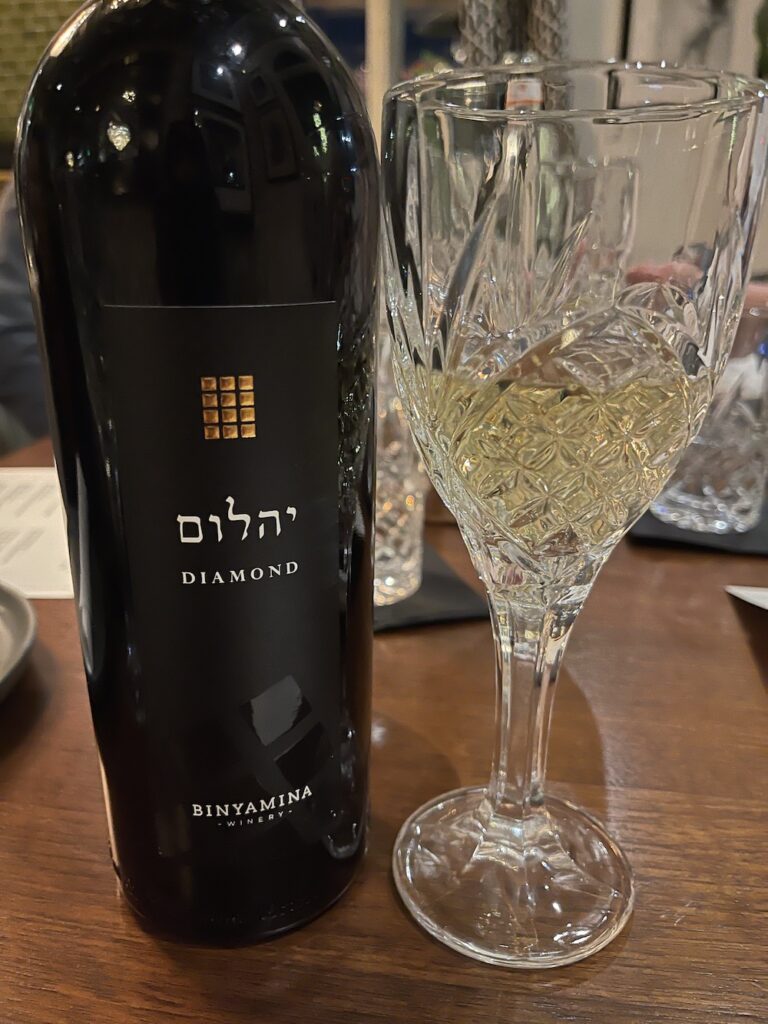
The Tarshish Cabernet Sauvignon Aquamarine 2017 is produced from grapes grown in the Upper Galilee & the Golan Heights. This young wine is remarkable because even after it has reached its peak it retains its characteristics for another three years.
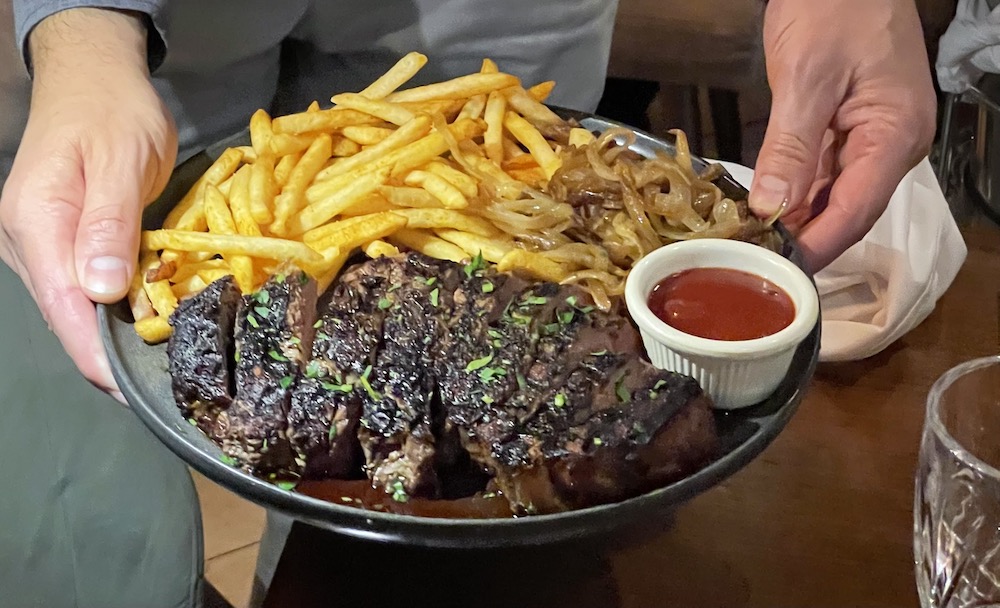
A very special wine aged in a cave from Ottoman times that’s cool year round is Benymamina Wineries’ THE CAVE. A Bordeaux style blend of Cabernet Sauvignon, Merlot and Petit Verdot, this wine is produced only in small amounts. In fact, there are only 5.5 acres planted at different times.
Any amount of THE CAVE produced sells out in Israel and America. The refined red wine pairs well and holds up to red meats.
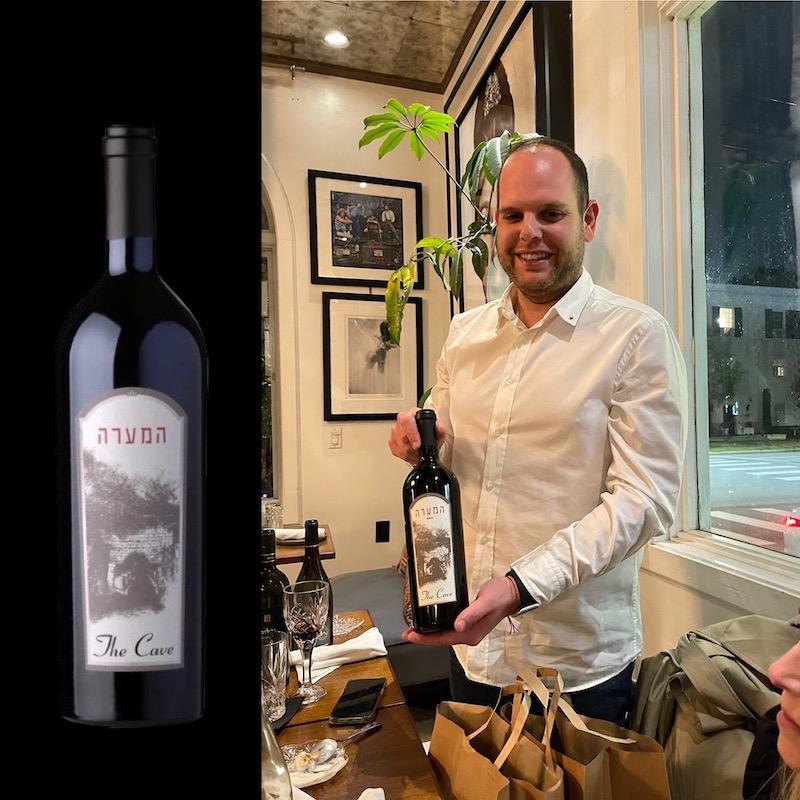
The Cabernets are their most popular wines, reported Omer although others are extremely popular. Esti was so enthusiastic about the Cave’s reception internationally. for example. “Everyone wants the Cave & Diamond and they are our most expensive wines. At $100 it is always a top seller.”
And we were gifted with a bottle to take with us. What a generous, sublime gift.
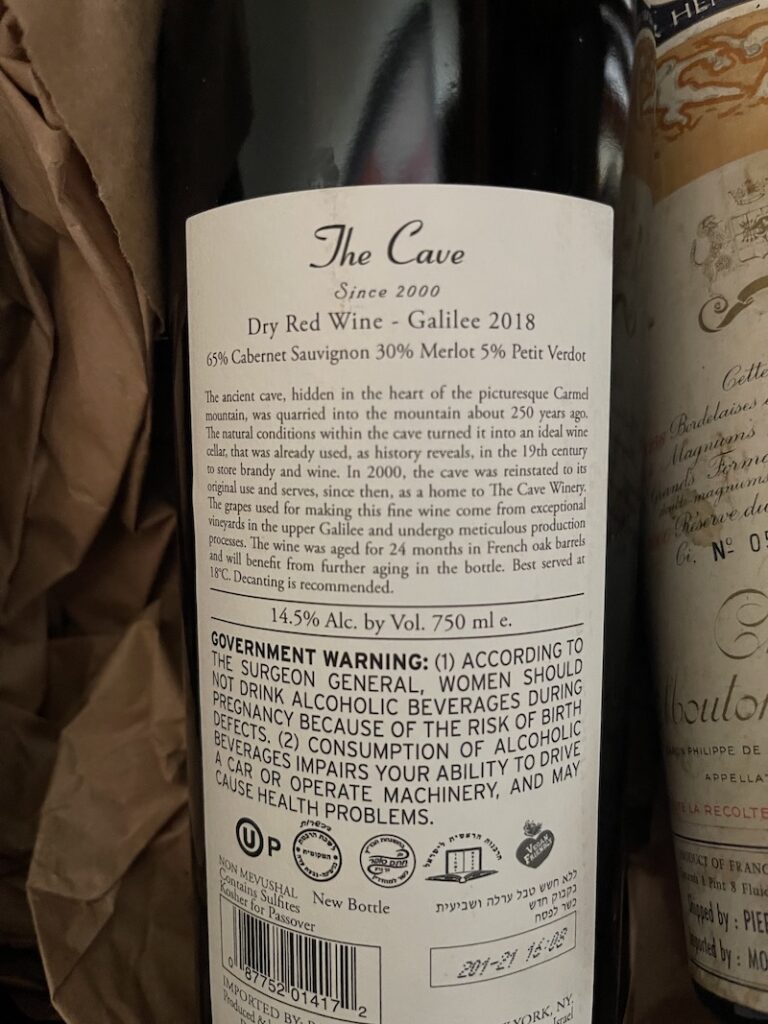
Chef Yoav Schverd explained how each dish paired with the wine. The menu is kosher style with no milk or butter in the kitchen, he assured us. Guest, cookbook writer Faye Levy, remarked about the chef using tahini in three dishes: raw tahini, tahini sauce (with lemon and garlic) beet tahini (with beet juice), and tahini in the dessert.
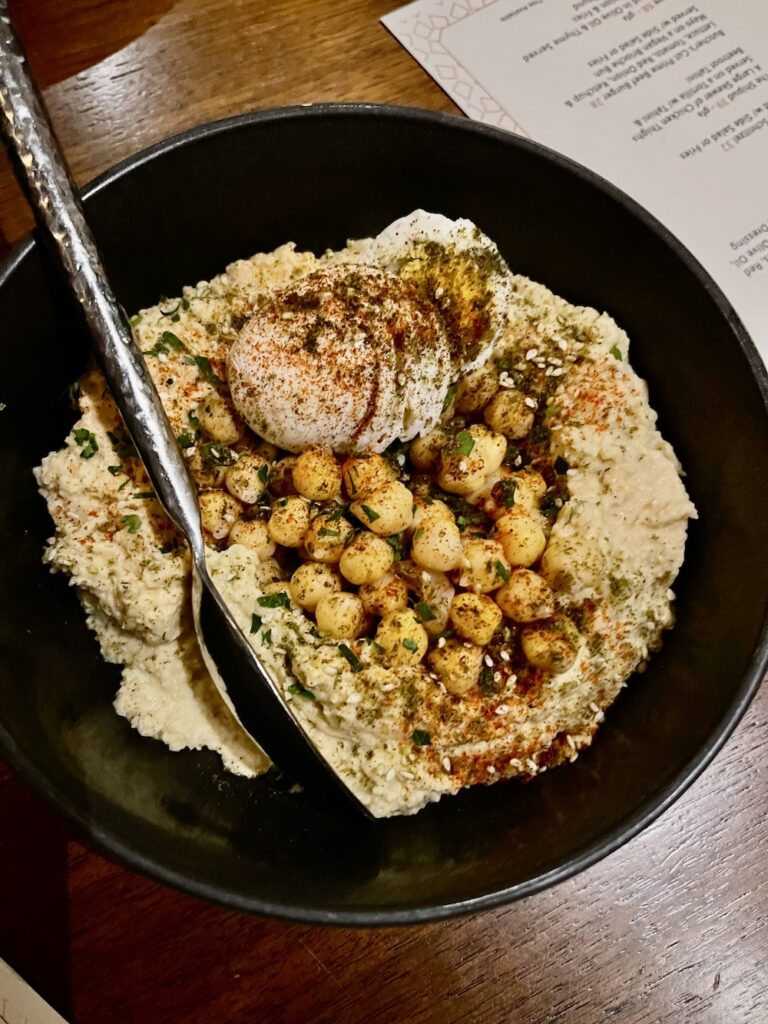
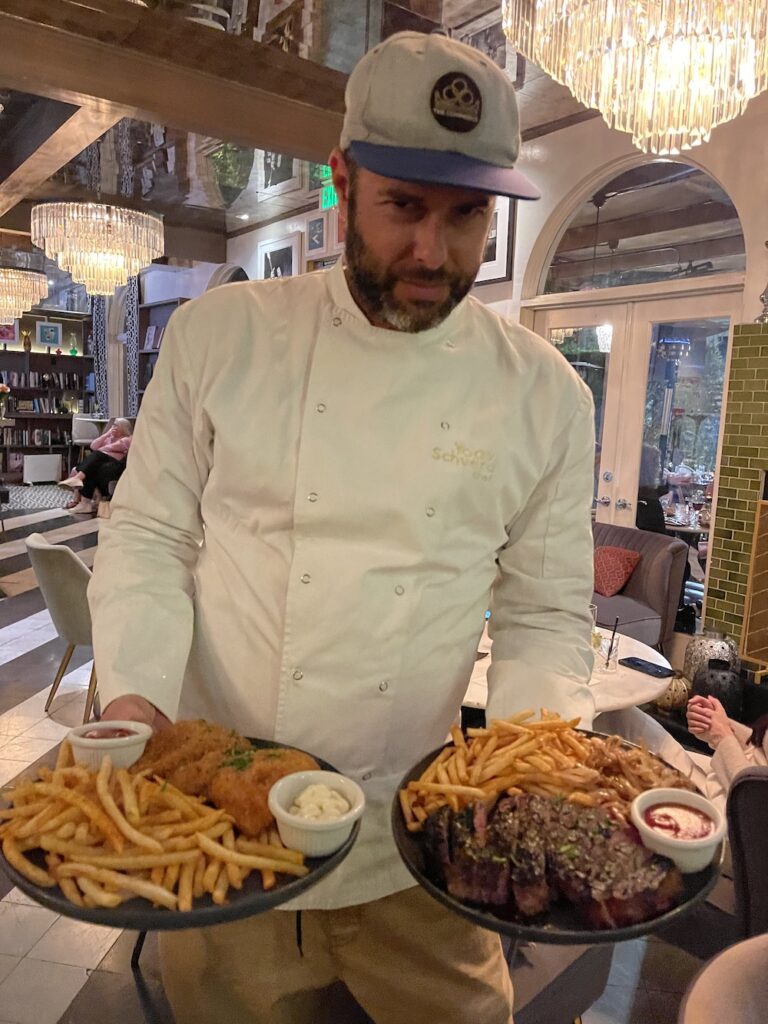
Other Mediterranean specialties included: Hummus Masabacha, topped with cooked chickpeas and hard boiled egg, house pita. The Nua pita exceptional, lightly dusted with finishing salt. Falafel prepared with chickpeas, parsley and cilantro is served with tahini sauce. Fried cauliflower florets are served with tahini & parsley. The dazzling signature Charred Eggplant,drizzled with tahini, olive oil, silan (date syrup) and tomato salsa is finished with a sprinkle of green onions. This dish is always gone first!
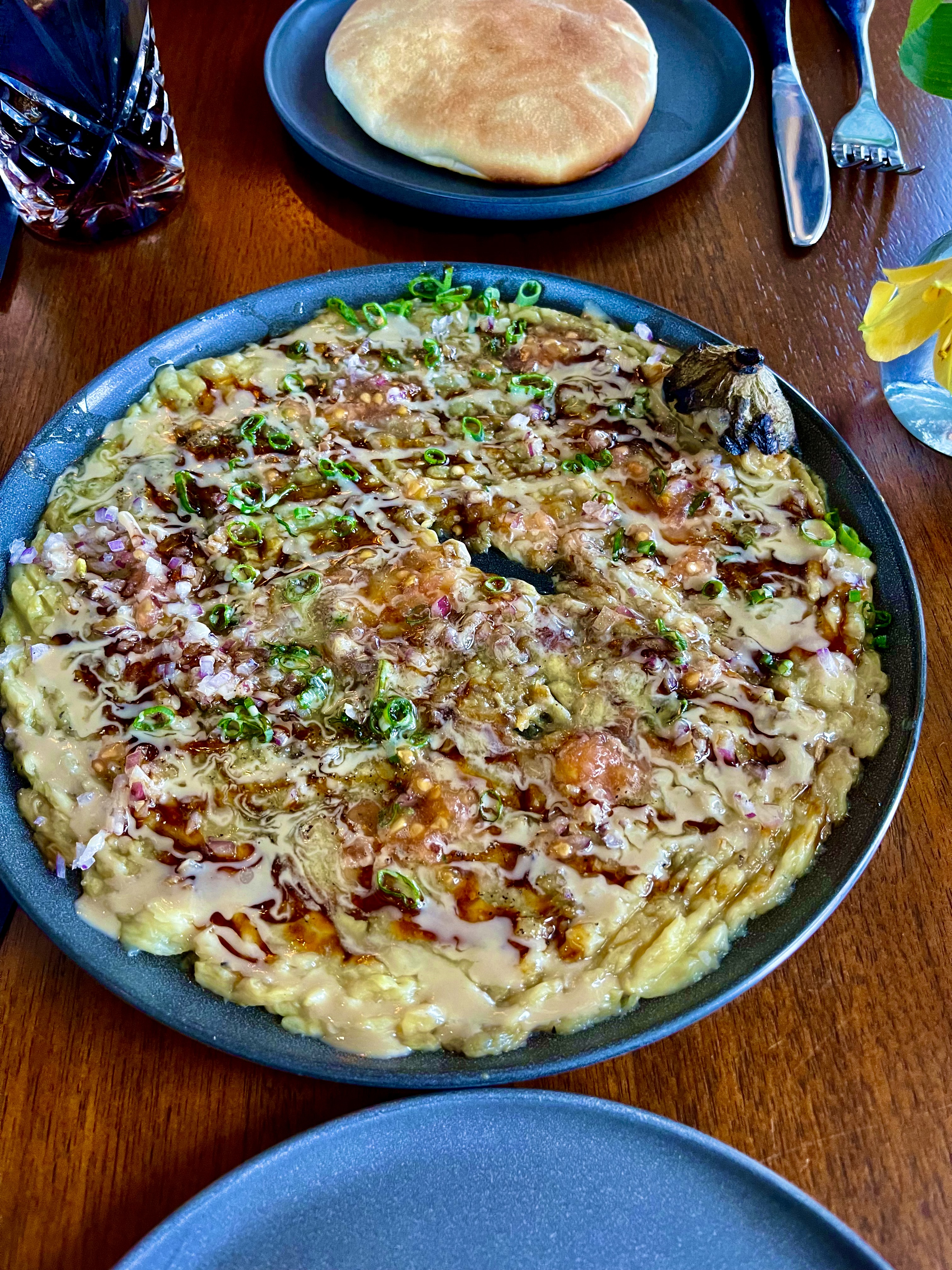
Other dishes includes Chicken Schnitzel with a brisk, crisp coating (In Chef Yoav’s right hand above) and is holding it. Shuk or “market in Hebrew” salad is a dressed up version of the classic tomato, cucumbers salad plus red peppers, radishes, arugula, green onions, dressed with olive oil, lime juice, reduced balsamic vinegar.
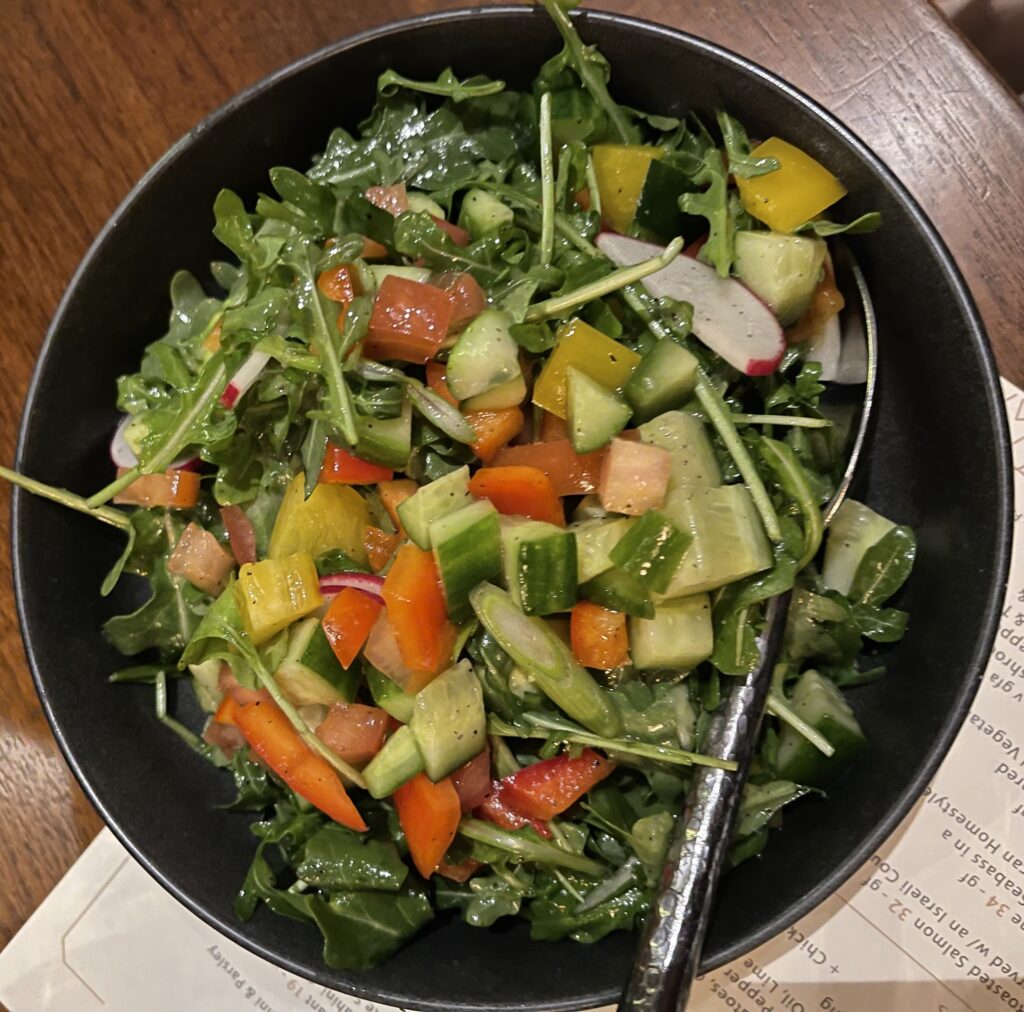
Fish is my favorite and the Haraime did not disappoint. Chef Yoav prepares the moist, light but firm Striped seabass in a North African homestyle tomato sauce made creamy with coconut milk. (We just saw this same technique last night in a Mexican sauce on a Julia Child show!
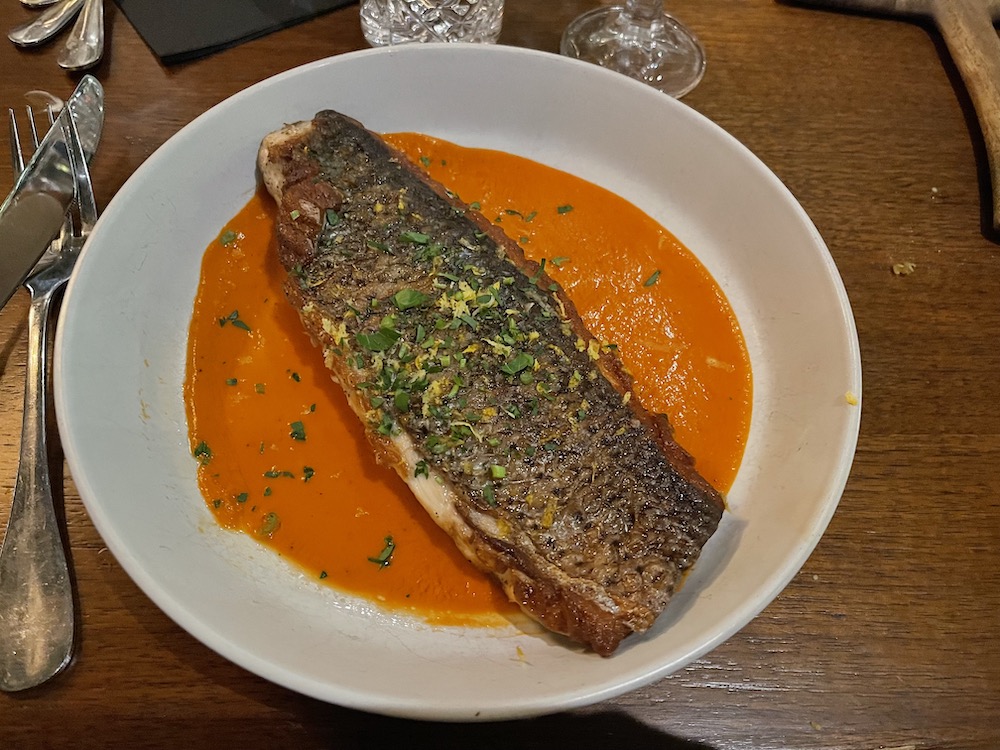
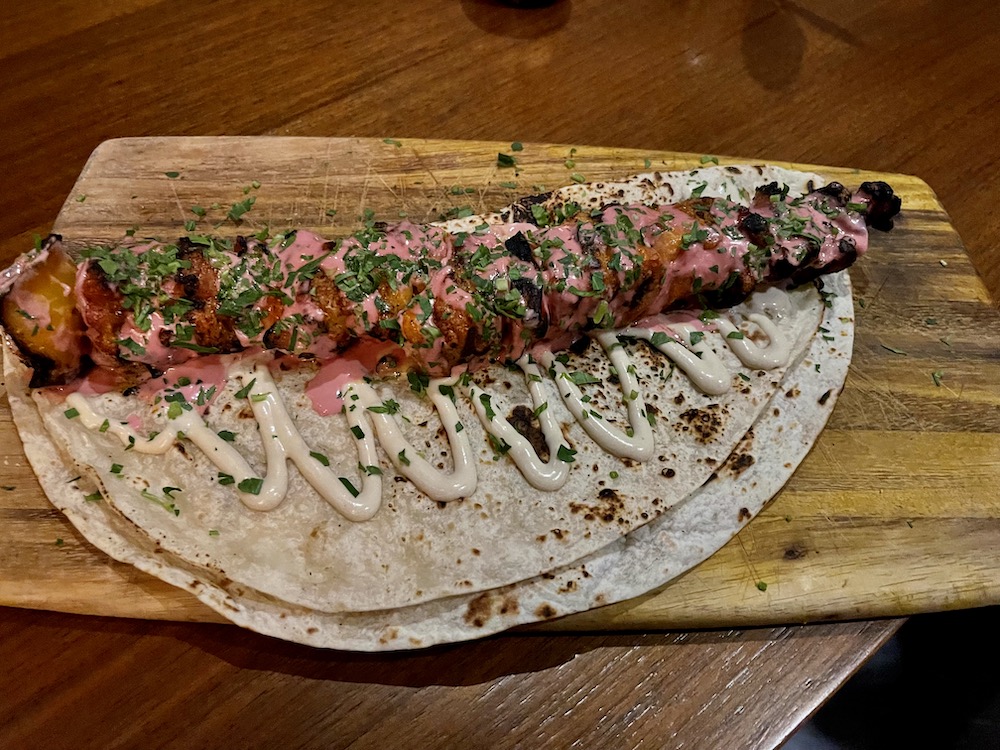

Desserts were light and satisfying even after such a full meal: Are Halva mousse cake with berries. The secret to its lightness is nondairy cream, raw tahini and being sweetened only with silan (date syrup. Creamy pudding, Malabi, is made with beet sauce and crunchy pistachios. Persian saffron pistachio ice cream turned the rainy, cold evening into a summery one for us.
Chef Yoav Schverd at Nua and Binyamina Winery also were star attractions in the Tel Aviv Groove, a culinary pop up.
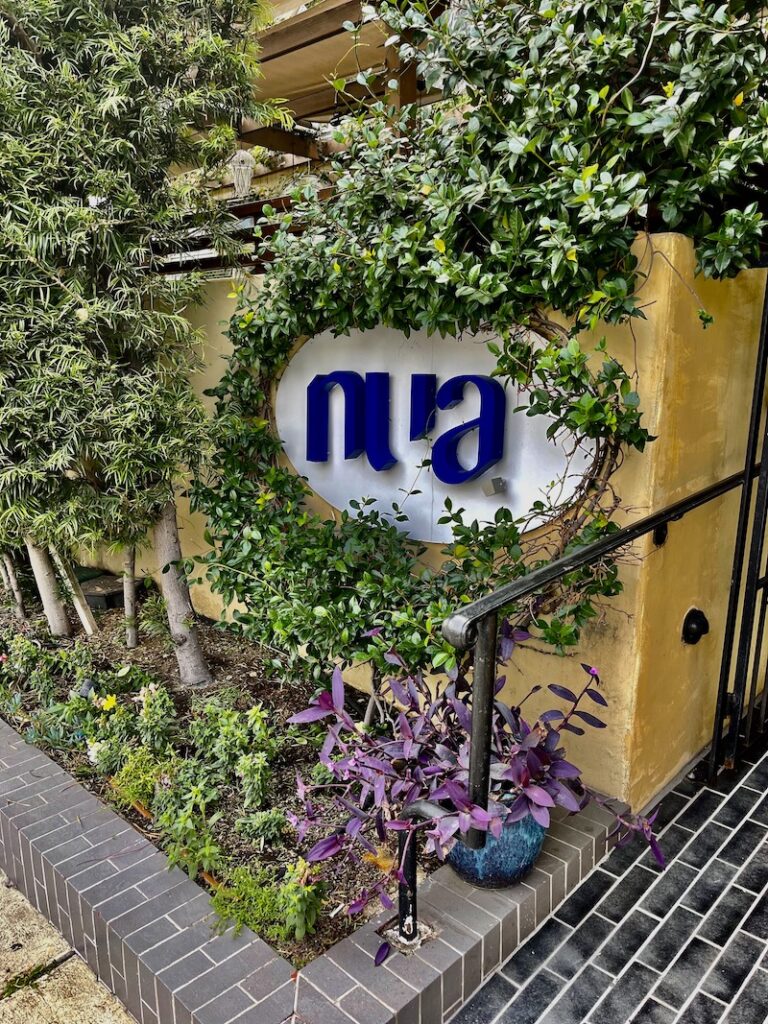
Binyamina Winery was founded in 1952 by Joseph Zeltzer. He immigrated to Israel from Hungary infused with a passion to continue being a winemaker. Zeltzer originally named the winery Eliaz, after his son who fell in battle during Israel’s War of Independence in 1948. He soon began making wine in the center of what was then considered Israel’s official wine region.
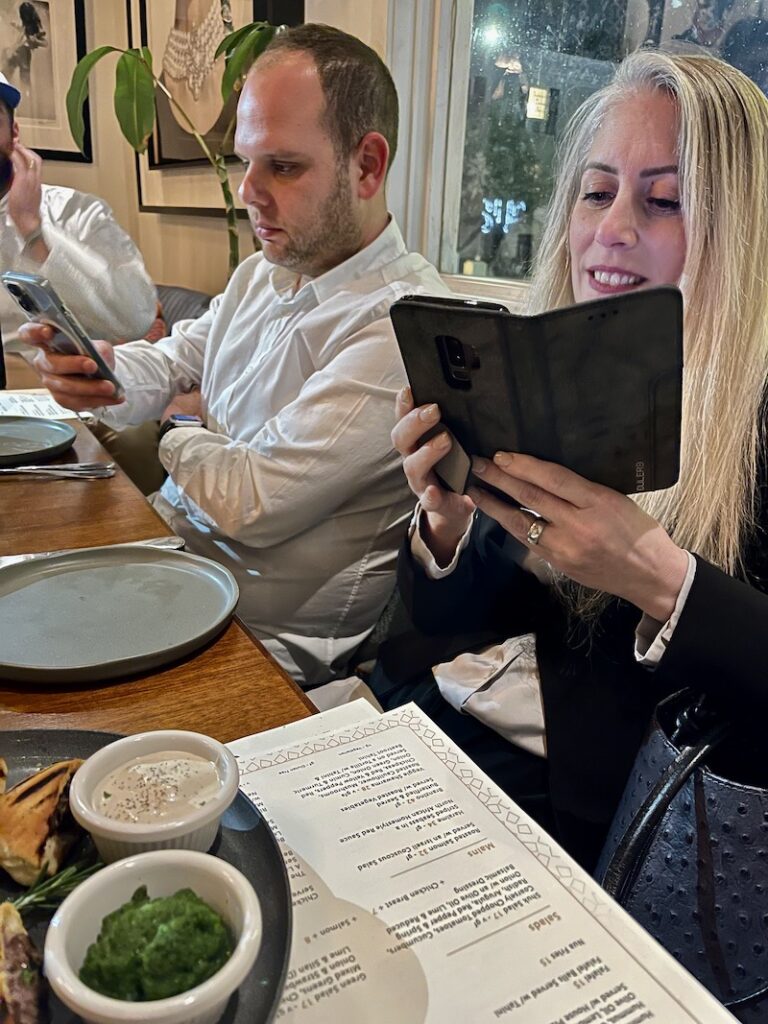
In the heart of a pastoral region on a peak in the Menashe Hills near Bat Shlomo, is an ancient cave whose walls reflect the land of Israels glorious past. The site was chosen for the factory in the early 20th century because of the abundant jasmine plants in the area, used to manufacture perfume essence. It was abandoned after the factory failed in 1937 that other than as an occasional use as a hiding place for members of the Hagana movement, the Jewish underground until the establishment of the State of Israel.
Today the cave serves as a home to the The Cave boutique winery. The terroir at higher elevations makes for cooler nights, windier days and wines with less sugar. Due to its age, the vineyards yields are naturally low-crop and never exceed 700 kg per dunam (0.1 hectares).
The Cave Wine is made from Cabernet Sauvignon and Merlot grapes grown on vines in the Upper Galilee that are over 15 years old and from Petit Verdot grapes grown in the south of Israel.

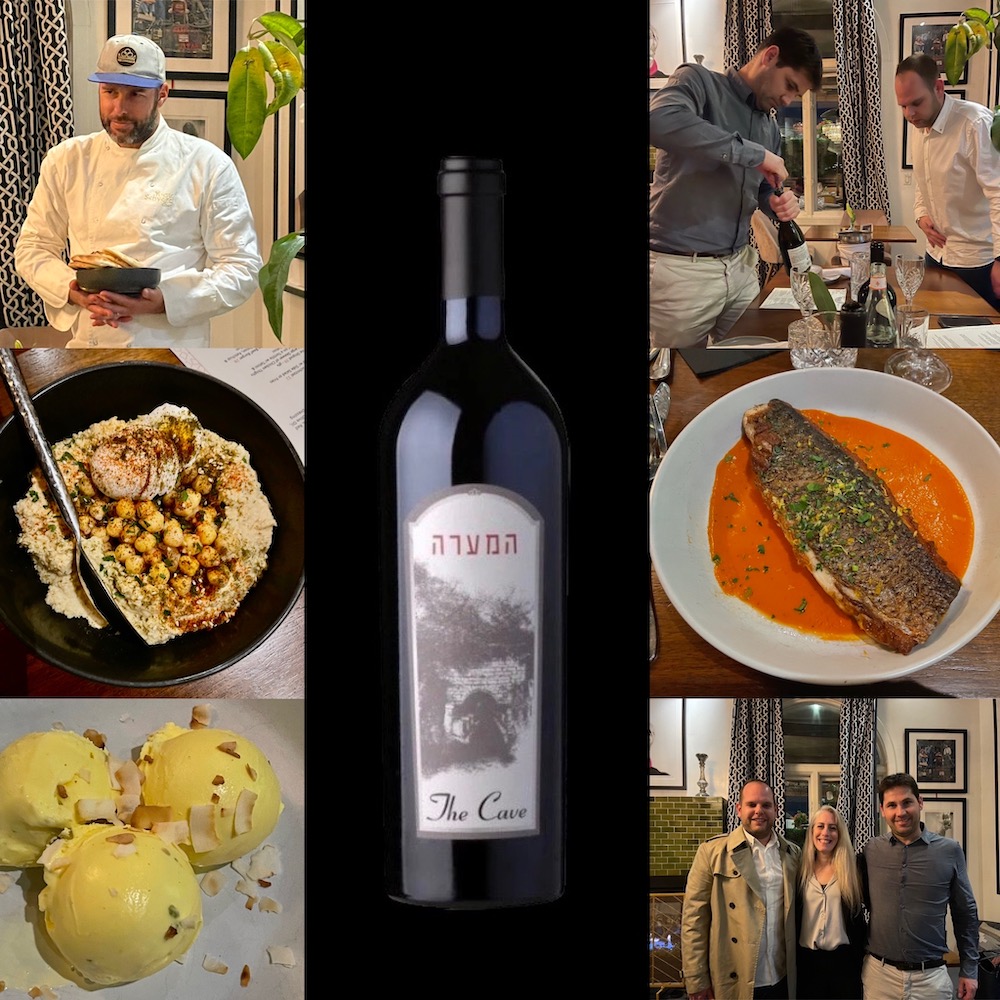
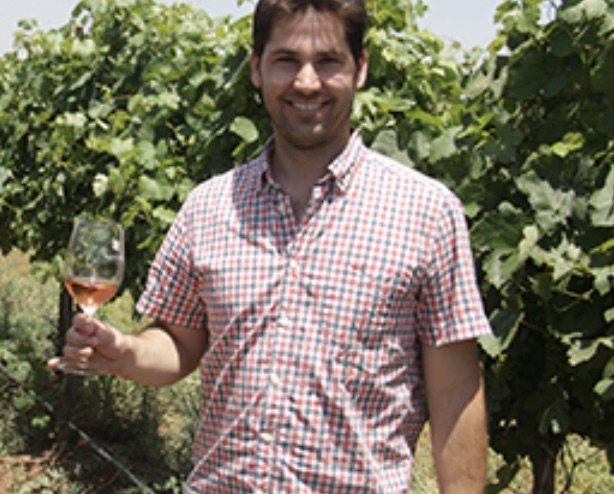
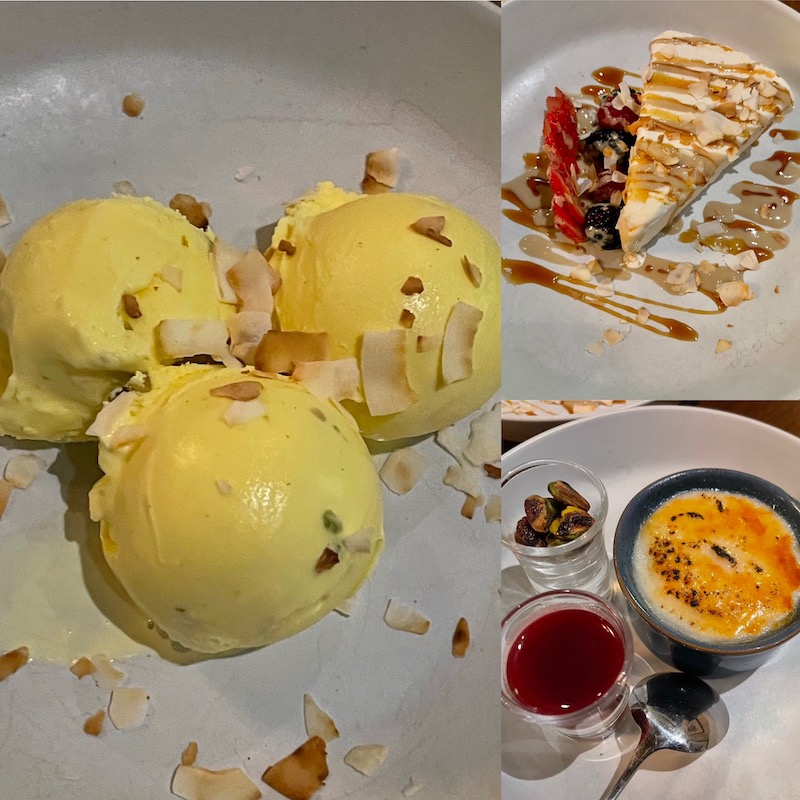
 Gerry Furth-Sides
Gerry Furth-Sides  Barbara Hansen
Barbara Hansen 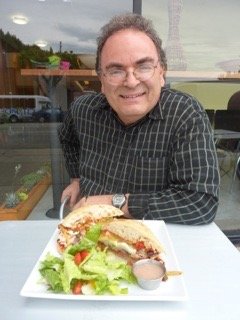 Chef-owner Alain Cohen
Chef-owner Alain Cohen  Roberta Deen
Roberta Deen  Jose Martinez
Jose Martinez  Nivedita Basu
Nivedita Basu